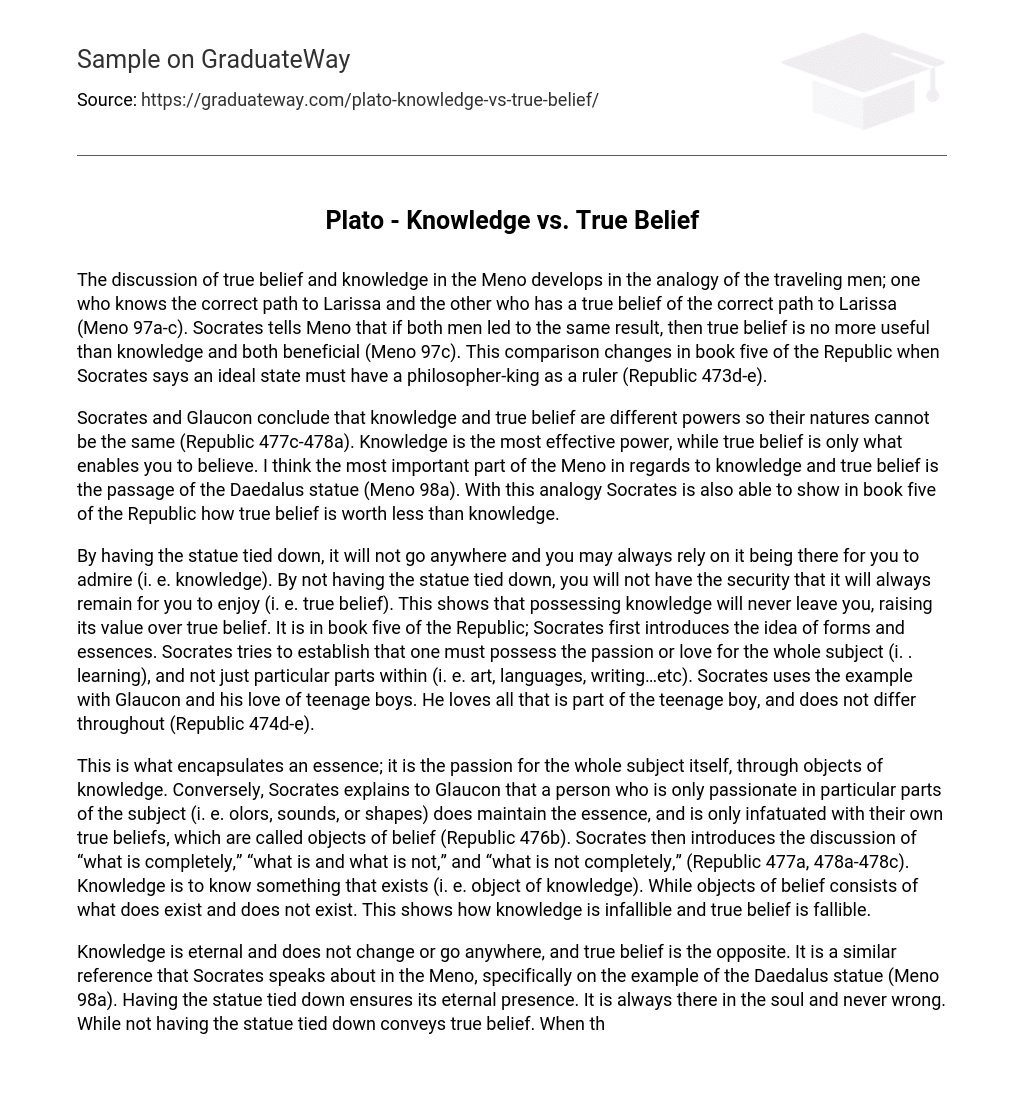The discussion in the Meno revolves around the analogy of two traveling men, one who possesses knowledge of the correct path to Larissa and the other who simply holds a true belief about it (Meno 97a-c). Socrates argues that if both men reach the same outcome, then true belief is just as advantageous as knowledge (Meno 97c). However, this comparison alters in book five of the Republic, where Socrates asserts that an ideal state necessitates a philosopher-king as its ruler (Republic 473d-e).
According to Socrates and Glaucon in Republic 477c-478a, knowledge and true belief are distinct abilities and therefore have different natures. Knowledge is the more powerful ability, while true belief only allows for belief. In Meno 98a, the passage of the Daedalus statue is crucial in understanding the relationship between knowledge and true belief. Socrates also illustrates in book five of the Republic how true belief holds less value compared to knowledge.
By keeping the statue tied down, you can always rely on it being there for you to admire (i.e. knowledge). If the statue is not tied down, you will not have the security of it always being available for you to enjoy (i.e. true belief). This illustrates that possessing knowledge is permanent and valuable compared to true belief. The concept of forms and essences is first introduced by Socrates in book five of the Republic. Socrates argues that one must have a passion for the whole subject (i.e. learning) rather than just specific parts (i.e. art, languages, writing, etc). He uses the example of Glaucon and his love for teenage boys to demonstrate this idea. Glaucon loves all aspects of the teenage boy and this love remains consistent throughout (Republic 474d-e).
This passage discusses the concept of essence and how it relates to knowledge and belief. Socrates explains to Glaucon that true passion for a subject comes from understanding the entirety of it, rather than just specific parts like colors or sounds. Those who are only invested in certain aspects maintain their own beliefs, which Socrates refers to as objects of belief. Additionally, Socrates introduces the ideas of what is completely, what is and what is not, and what is not completely. Knowledge is defined as understanding something that exists, while beliefs can encompass both existence and non-existence. This distinction emphasizes the infallibility of knowledge and the fallibility of belief.
According to Socrates, knowledge and true belief have contrasting properties. In the Meno, Socrates uses the example of the Daedalus statue to illustrate this concept (Meno 98a). Tying down the statue ensures its perpetual existence within the soul, never faltering. Conversely, when the statue is not secured, it represents true belief. The presence of the statue is advantageous to humans as it represents existence. However, since we cannot guarantee its permanence, the departure of the statue demonstrates how beliefs evolve over time.
This passage discusses how belief can change and is not eternal. It highlights the inability of people who hold true beliefs to demonstrate or justify their beliefs as true. This distinction between knowledge and true belief is significant, as knowledge is considered eternal and unchanging, while beliefs are subject to change over time.





